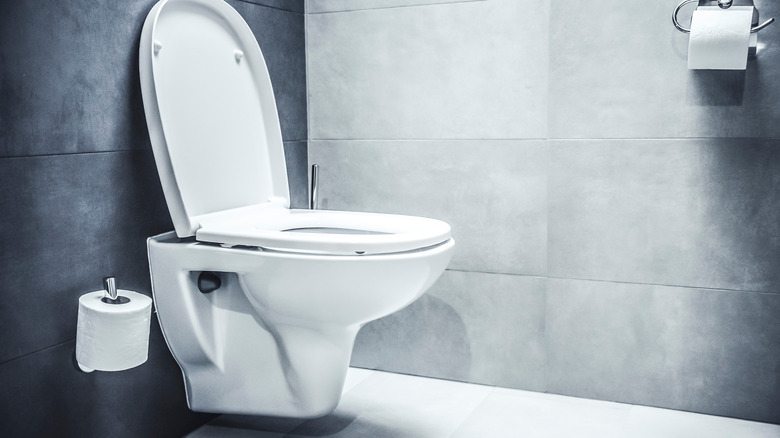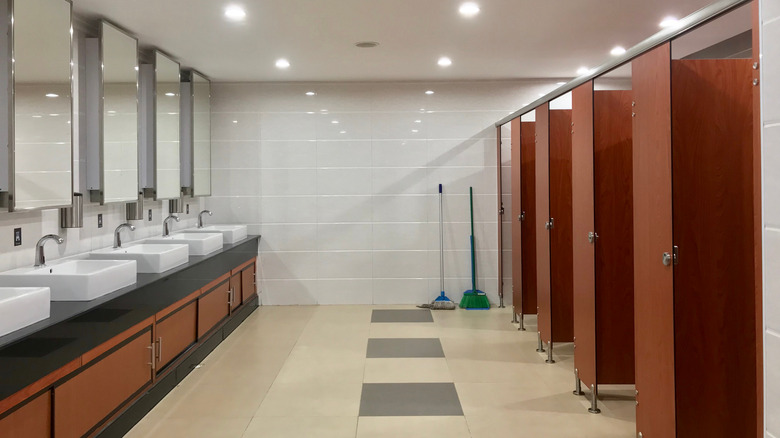What You Need To Know About Public Toilets
In fairly gross news, researchers at Florida Atlantic University have found that public restrooms could be increasing airborne disease transmission, thanks to the power of aerosol droplets released with every flush. Respiratory droplets are the primary driver for spreading COVID-19, so it's more important than ever to be careful when using public toilets, especially since researchers noted that in the United States, most public toilets don't have toilet seat covers to blunt some of the droplets spread with every flush. Don't panic though: Here's what you need to know before you ... go.
Not every illness will be spread through the air, but COVID-19 is most commonly spread in crowded places, through close contact, and in "confined and enclosed spaces with poor ventilation," according to the World Health Organization. Most public restrooms are small enough to have poor ventilation, and adding in the flush of a toilet pushing tiny droplets into the air can boost transmission potential, especially since the COVID-19 virus can be present in feces, which can end up expelled in the plume caused by a toilet flush (via Harvard Health Publishing).
What should you do if you need to use a restroom?
Unfortunately, the risk of not only COVID-19 but other airborne diseases like ebola and norovirus does exist in poorly ventilated restrooms. "Aerosolized droplets play a central role in the transmission of various infectious diseases including COVID-19, and this latest research by our team of scientists provides additional evidence to support the risk of infection transmission in confined and poorly ventilated spaces," Stella Batalama, Ph.D., dean of the College of Engineering and Computer Science at Florida Atlantic University said in the school's press release about the study.
If you're in a restroom with other people, your risk will increase: Your own aerosol spray from a flush won't pose a risk to you, but a highly trafficked restroom may increase your risk. Make your trips to public washrooms as quick as possible (and keep your mask on). "Time is on your side," Todd Ellerin, M.D., director of infectious diseases at South Shore Hospital told Harvard Health Publishing. "Save the long [bathroom] visits for your home." And of course, wash your hands.


